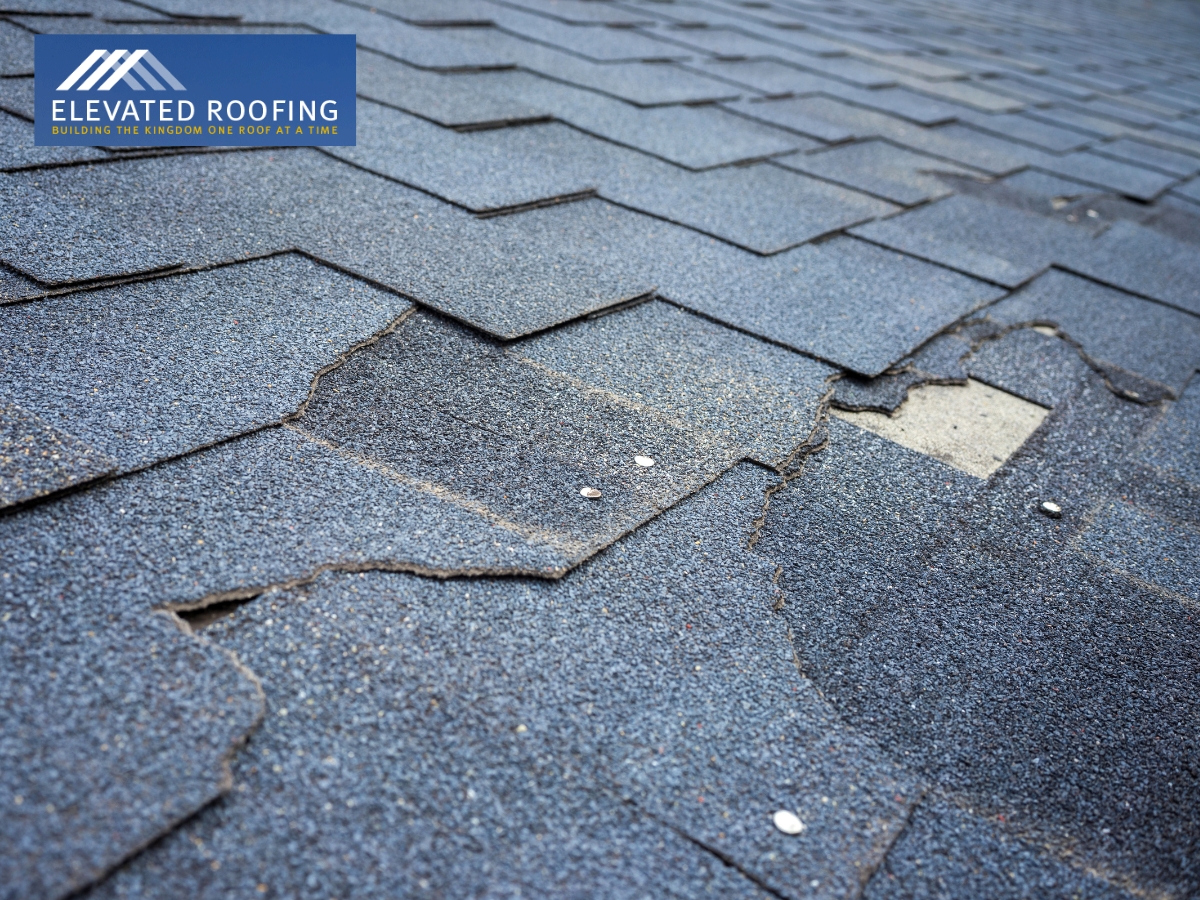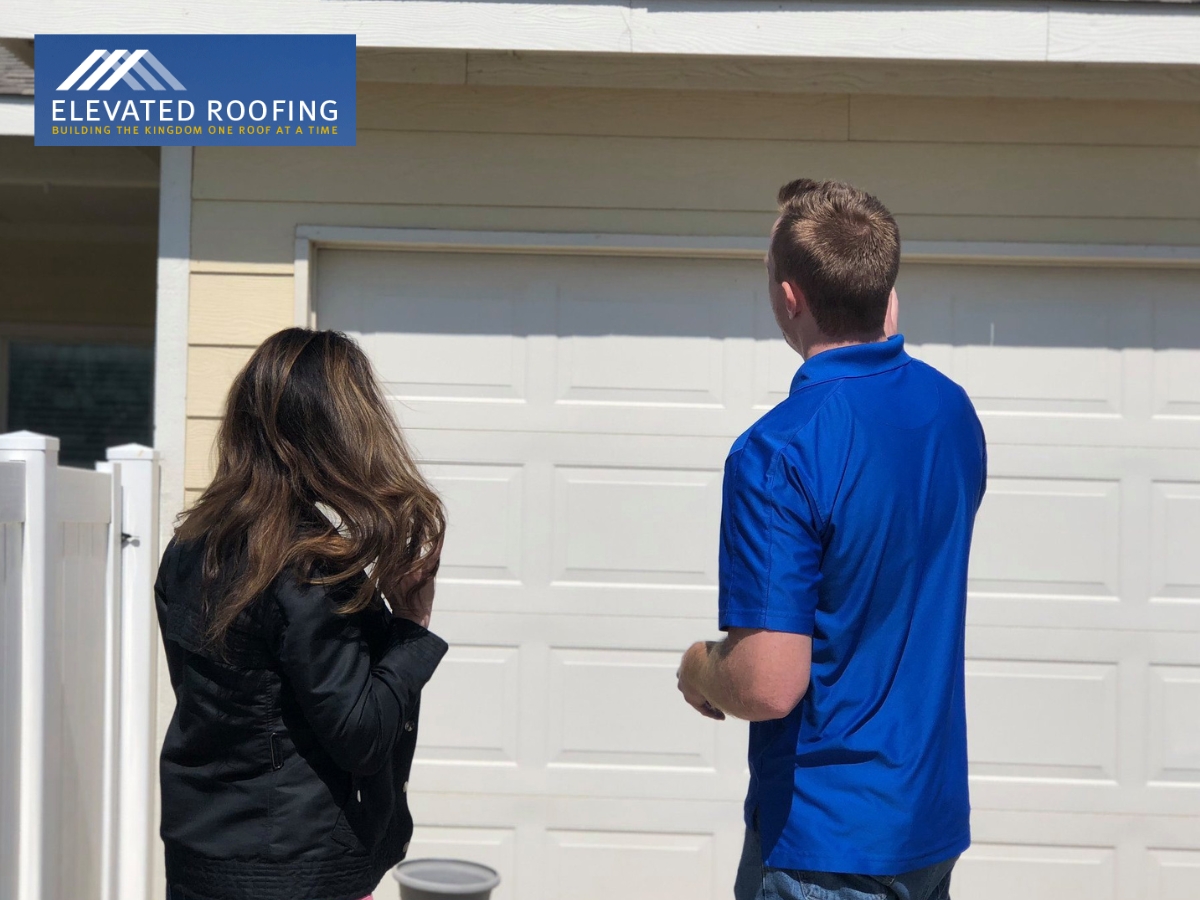Roof inspections are an essential part of maintaining your roof’s health and longevity. After all, your roof is the shield that protects your home from the elements. But once the inspection is done, what’s next?
It’s crucial to ask the right questions to understand the current state of your roof and the steps you might need to take next. At New View Roofing, we believe in transparency and ensuring our clients are well-informed.
10 Questions to Ask Your Roof Inspector
 After a thorough roof inspection, our inspectors are there to answer your questions. But what should you ask? Try the following:
After a thorough roof inspection, our inspectors are there to answer your questions. But what should you ask? Try the following:
- What’s the roof’s overall condition?
- Are there any immediate repairs needed?
- How many more years can I expect from this roof?
- What are the potential problem areas to watch out for?
- Are there any preventive measures I can take?
- How does the ventilation look?
- What kind of maintenance routine do you recommend?
- In case of replacements, what materials do you suggest?
- How does the insulation look, and how does it impact my home?
- Are there any warranties or guarantees I should be aware of?
Here’s a closer look at each.
What’s the Roof’s Overall Condition?
When we talk about understanding the overall condition of your roof, we’re referring to a comprehensive assessment of its current state. This involves checking for visible signs of wear and tear, damages and the roof’s structural integrity. By getting a clear picture of the roof’s condition, you can make informed decisions about repairs, maintenance or even replacement. It’s like a health check-up; by knowing where things stand, you can determine the next steps and prioritize them accordingly.
Related: What happens during a free roof inspection?
Are Any Immediate Repairs Needed?
Your roof, like any other part of your home, can develop issues over time. Some of these issues might be minor, like deteriorating shingles, while others might be more severe, such as leaks. Regardless of the size of the problem, it’s essential to address it promptly. Ignoring or delaying repairs can lead to more extensive damage, which can be more expensive to fix. By identifying and addressing immediate repairs, homeowners can prevent small problems from becoming big headaches.
How Many More Years Can I Expect from This Roof?
Every roofing material — asphalt shingles, metal, tile or something else — has a projected lifespan. Factors like the quality of installation, the material’s durability and environmental conditions can influence how long a roof lasts. By understanding your roof’s life expectancy, you can plan for future expenses and make decisions about when it may be time for a replacement. It’s about being proactive and ensuring you’re not caught off guard when the time comes for a replacement.
What Are the Potential Problem Areas to Watch Out for?
Every roof has areas that are more susceptible to damage, like valleys, edges, or areas near chimneys and vents. By being aware of these potential problem areas, you can pay closer attention to them during routine checks. This proactive approach can lead to early detection of issues, allowing for timely repairs and preventing more extensive damage.
Related: Signs your roof is failing
Are There Any Preventive Measures I Can Take?
The idea behind preventive measures is to take steps that reduce the risk of damage or wear to the roof. Regularly cleaning your gutters, trimming overhanging tree branches or working with a roofing contractor to apply a protective coating to your roof may all help preserve your roofing materials (and lower the likelihood of needing repairs). Your inspector will be happy to talk to you about what you can do to prolong your roof’s lifespan and keep it in its best condition for as long as possible.
How Does the Ventilation Look?
Proper roof ventilation ensures that there’s a continuous flow of air beneath your roofing materials, which helps in regulating temperature and moisture levels in the attic. A well-ventilated roof can prevent issues like mold growth, wood rot and ice dams, and it can help make your home more energy-efficient, leading to savings on heating and cooling costs. Your inspector will tell you whether your roof vents are working properly, and if they’re not, what you can do to get them on-track.
Related: What should you do if your roof’s damaged in a storm?
What Kind of Maintenance Routine Do You Recommend?
 A roof’s longevity is significantly influenced by how well it’s maintained. Regular maintenance involves inspecting the roof for damage, cleaning gutters, checking for loose or missing shingles, and ensuring seals and flashings are intact. By sticking to a recommended maintenance routine, you can keep your roof in optimal condition and reduce the likelihood of unexpected repairs.
A roof’s longevity is significantly influenced by how well it’s maintained. Regular maintenance involves inspecting the roof for damage, cleaning gutters, checking for loose or missing shingles, and ensuring seals and flashings are intact. By sticking to a recommended maintenance routine, you can keep your roof in optimal condition and reduce the likelihood of unexpected repairs.
In Case of Replacements, What Materials Do You Suggest?
When you’re thinking about a roof replacement, you have to choose the right materials. Different materials offer varying benefits in terms of durability, aesthetics and cost, so our team will give you insights into which materials are best-suited for your home’s needs; we’ll consider factors such as the local climate, your budget and the look you want.
Related: 5 reasons you should only work with an insured roofing company
How Does the Insulation Look, and How Does It Impact My Home?
Roof insulation plays a pivotal role in maintaining your home’s internal temperature. Proper insulation keeps your home warm during winters and cool during summers. By evaluating the current state of your roof’s insulation, we can recommend improvements or replacements, which means enhanced energy efficiency (and lower utility bills) for you.
Are There Any Warranties or Guarantees I Should Be Aware Of?
Roofing projects, whether repairs or replacements, often come with warranties or guarantees. These provide homeowners with peace of mind, knowing that the work is backed by a promise of quality. It’s essential to understand the terms of these warranties, including what’s covered, the duration, and any conditions or exclusions. This knowledge can be invaluable if any issues arise in the future.
Ready to Dive Deeper into Your Roof’s Health?
If you’re eager to understand more about your roof’s condition in the Dallas-Fort Worth area, don’t hesitate to reach out and schedule your free roof inspection. We’re flexible and can arrange a time that aligns with your schedule.








